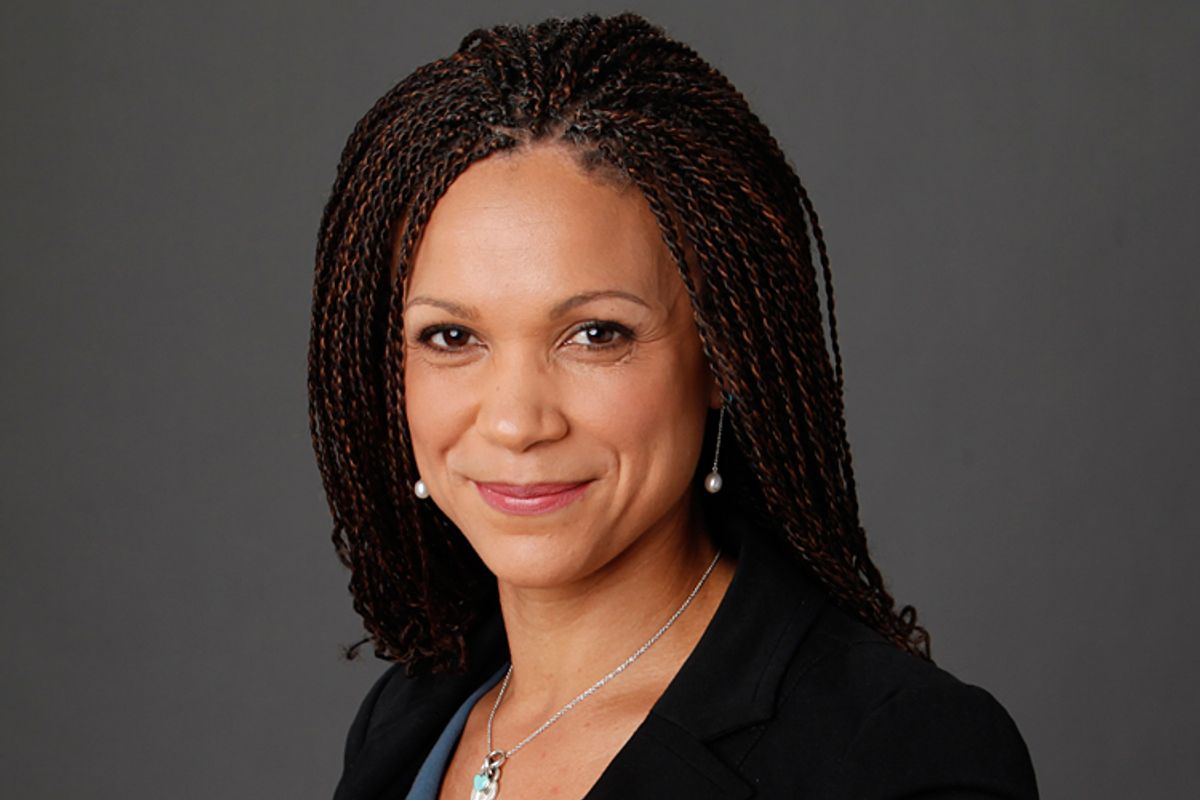In a column for the Atlantic, Ta-Nehisi Coates described MSNBC host Melissa Harris-Perry as "America's most foremost public intellectual." That status, Coates wrote, denotes a person worthy of holding (or attempting to hold) a frank conversation about the Romney family, who belong to a historically discriminatory religion, raising a black grandchild.
There is no doubt that that segment went badly off the rails. But Harris-Perry promptly apologized, and Coates' column serves not as an endorsement of Harris-Perry as the new queen of American intellectualism but as a confirmation of her intellectual seriousness, as a person who's dealt with the racial implications of Mormonism for years.
It's that turn of phrase -- "America's foremost public intellectual" -- that's bringing out the trolls. Though it's tangential to the main point of the piece, and a rhetorical device intended to convey simply that Harris-Perry's program works through complicated issues in a rigorous fashion unusual on television, it's brought out critics, folks who fundamentally seem not to understand Harris-Perry's project.
Politico media reporter Dylan Byers, for instance, has appointed himself a sort of ombudsman of intellectual credibility:
[embedtweet id="420585626631540737"]
Byers' claim seems to be that a "weekend MSNBC host" cannot be a public intellectual.
[embedtweet id="420593517161750528"]
But that's exactly the sort of person with the platform to potentially be a public intellectual. By her very nature, a public intellectual brings to bear her analysis, intellect and theory to a wide audience, not just to the academy; a "weekend MSNBC host" can be intellectual or not (Harris-Perry, a professor at Tulane, would seem to be), but is certainly public.
Consider the alternatives Byers proposes:
[embedtweet id="420607994540224512"]
First of all, that's five white men and a white woman who's ineligible due to the inconvenient fact of her death. But who's counting? Instead, consider that Harris-Perry, whom one may (correctly) or may not (incorrectly) consider an intellectual, has four hours a week of airtime in which she can discuss whatever she wants before a wide audience. Bernard Lewis (who, as a side note, has denied the 1915 Armenian genocide) is a professor at Princeton. Noam Chomsky is a professor at MIT. Jeffrey Sachs is at Columbia. E.O. Wilson has retired from Harvard. All of these men are public intellectuals, sure -- they publish books, they grant interviews -- but their impact is most keenly felt among academics, not in the wider world. (Paul Krugman is a Princeton professor who speaks to non-academics through his New York Times column, but, proving he does not understand the demands of framing intellectual ideas, week-in and week-out, for general consumption, Byers calls Krugman's work "redundant.")
Harris-Perry, as Coates himself notes, is not necessarily a better thinker than any of the white men Byers idealizes. But she is more public. She sits, uniquely, at the intersection of the academy and the media and it's impossible to deny that in 2014, her audience is larger than Bernard Lewis'. So if one can't disprove her "public," why not impugn her as an "intellectual," as Commentary editor John Podhoretz does?
[embedtweet id="420602758392074240"]
Podhoretz purposely twists Coates' argument in order to insinuate Harris-Perry is an idiot. But surely Coates, like Harris-Perry who despite her broad audience must still be told she's no Bernard Lewis when it comes to speaking to the public, is used to being misconstrued and ignored.



Shares